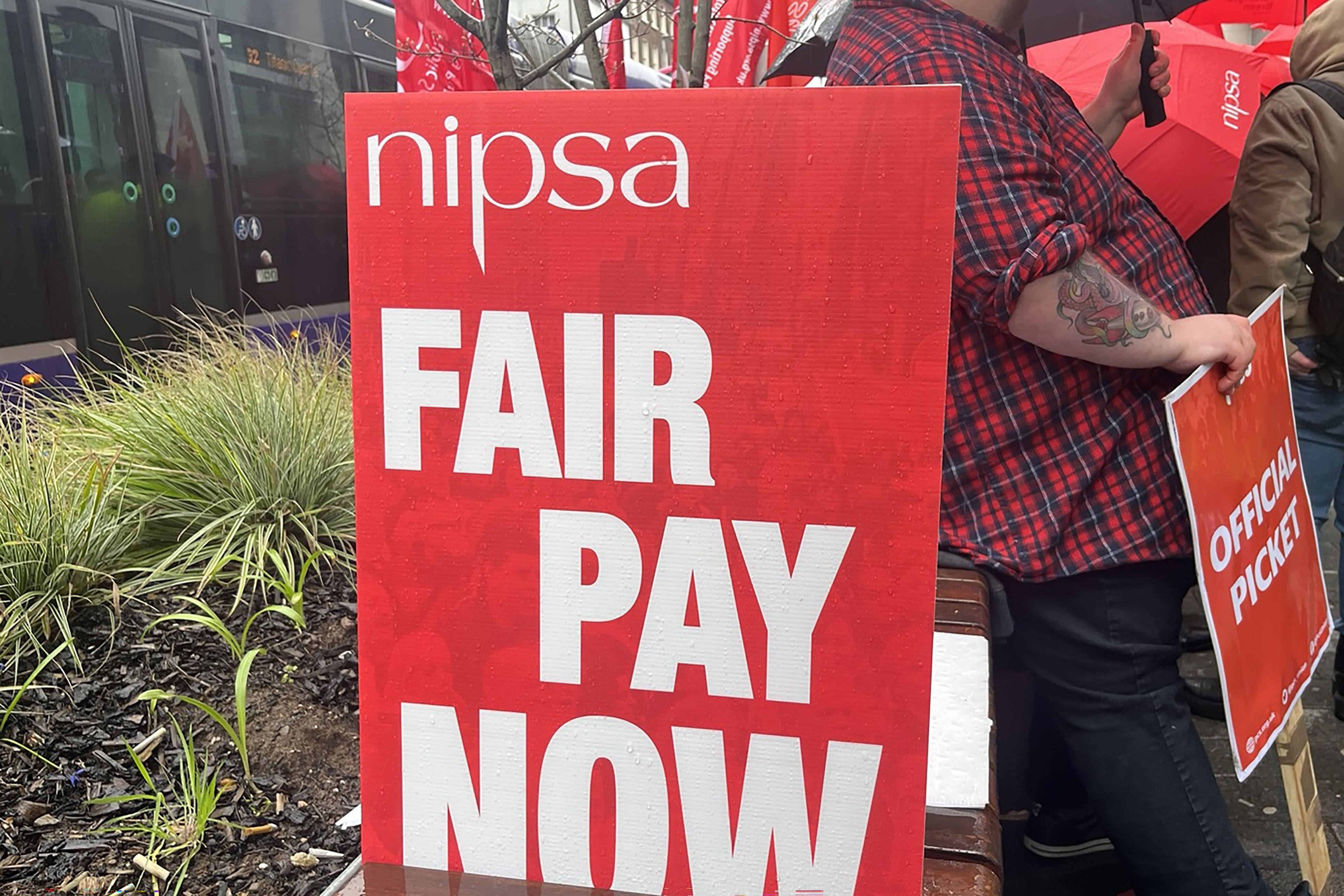NI teachers and civil servants involved in biggest industrial action in a decade
Most schools in the region are closed on Wednesday as a result of the action.

Your support helps us to tell the story
This election is still a dead heat, according to most polls. In a fight with such wafer-thin margins, we need reporters on the ground talking to the people Trump and Harris are courting. Your support allows us to keep sending journalists to the story.
The Independent is trusted by 27 million Americans from across the entire political spectrum every month. Unlike many other quality news outlets, we choose not to lock you out of our reporting and analysis with paywalls. But quality journalism must still be paid for.
Help us keep bring these critical stories to light. Your support makes all the difference.
Hundreds of teachers and civil servants are striking in what trade unions have described as the biggest industrial action in Northern Ireland in more than a decade.
Most schools in the region are closed on Wednesday as a result of the action.
Nipsa (Northern Ireland Public Service Alliance), the largest union in Northern Ireland, has been joined by members of PCS, GMB, Unite and teachers’ unions at picket lines.
The unions say the scale of action means people across Northern Ireland will be directly impacted.
The pay award to our members of £552 is insulting and derisory and adds to the wage cut of more than 20% in 10 years
All five teaching unions in Northern Ireland are involved, with the National Association of Head Teachers striking for the first time in its history in relation to pay.
A pay award amounting to £552 a year for some civil servants was offered by the Government at the start of the month, but talks with health unions around the same time did result in an offer.
Nipsa says the strike is taking place against a backdrop of a sharp decline in the real value of public service pay, the Northern Ireland public service budget crisis and an overwhelming cost-of-living crunch hitting working class communities.
Rallies are planned at the Millennium Forum in Londonderry and at Belfast City Hall.
Nipsa general secretary Carmel Gates said the Secretary of State for Northern Ireland, Chris Heaton-Harris, was imposing sanctions on public services to try to force Northern Ireland political parties to return to the assembly.
“The action has been forced in large measure by the government’s decision to implement sanctions in Northern Ireland,” she said.
“The sanctions imposed by the Secretary of State and Westminster are designed to force Northern Ireland political parties to return to Stormont. In effect, these sanctions only hurt ordinary people and will cause permanent damage to public services.
“The pay award to our members of £552 is insulting and derisory and adds to the wage cut of more than 20% in 10 years. More than 60% of civil servants now earn below the NI median wage.
“It is time for the trade union movement to say enough is enough. We will build a mighty campaign for pay justice and for an end to cuts in public services.
“I call on every working-class community to join us in this struggle.”
Subscribe to Independent Premium to bookmark this article
Want to bookmark your favourite articles and stories to read or reference later? Start your Independent Premium subscription today.